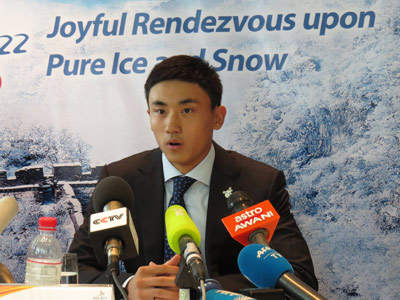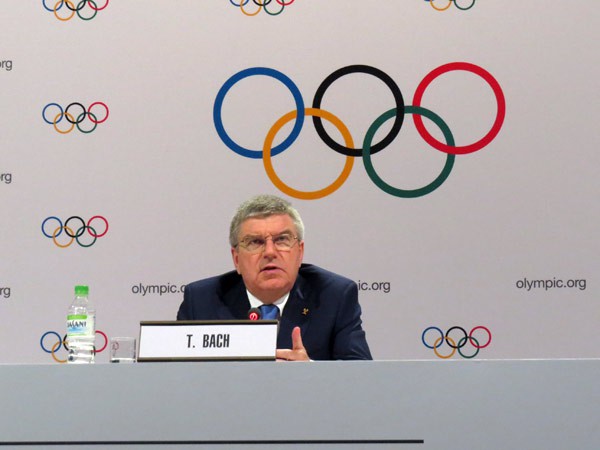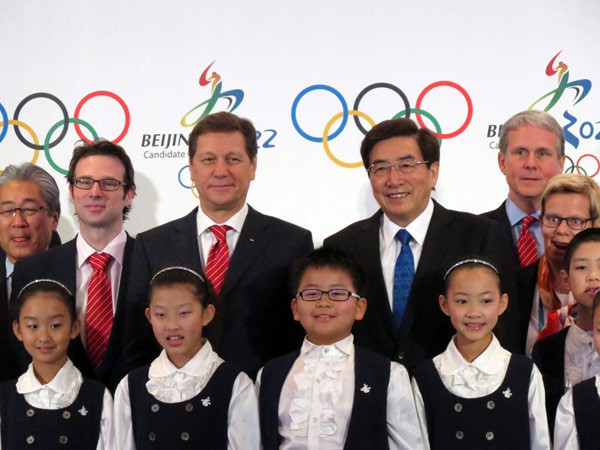PyeongChang, South Korea – Memories of the PyeongChang Olympic Winter Games are still fresh in our minds – the gusting event-cancelling winds are echoing in our ears and the mesmerizing chants of the North Korean cheerleaders humming from our lips.
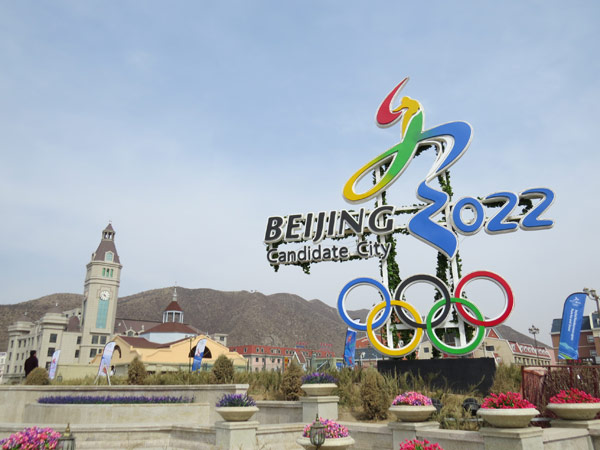
But as the Games close in a Ceremony at the PyeongChang Olympic Stadium Sunday, the torch – or in this case the Olympic Flag – will be passed to the next host city, Beijing in 2022. And as is the tradition, during the ceremony we’ll get a short theatrical preview of those Games to come – seeding our expectations and dreams for the next four years.
Most of us already have recent memories of Beijing, the hosts of the first-ever Games to be held in China in 2008. And indeed – the Winter Games will return us to some of the same venues used for that Summer edition.
Beijing was an unlikely choice to host in 2022 – organizers at the time had even admitted that the bid could be merely a ‘warm-up’ for a later successful winning bid, especially in the face of formidable European rival cities lined up to host. But things changed quickly, and in a big way.
One-after-another, all four declared bidders from Europe including Stockholm, Lviv, Krakow and Oslo dropped out of the race – politics, war and a lost referendum laid waste the field of candidates leaving only unknown Almaty in Kazakhstan and familiar Beijing. Despite the questionable connection that the Chinese Capital has to Winter sports, International Olympic Committee (IOC) members awarded the city a very narrow 44-40 victory.
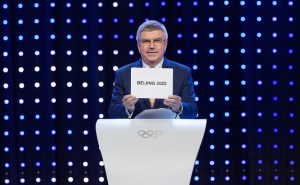
The feel of the Beijing Games will be as far from those of PyeongChang as the 2022 Games clusters will be from each other.
Beijing will utilize three main clusters, and the main Beijing cluster will be focused around the same Olympic Park used in 2008 with the iconic Bird’s Nest Olympic Stadium set to host the ceremonies once again. The adjacent Water Cube, a swimming venue memorable as Michael Phelp’s personal record-breaking gold-medal repository, will be converted to the Ice Cube to create new Curling memories. Much of that venue is now an indoor water park.
A speed-skating oval will be added to the park and the Capital Indoor Stadium will be used for figure skating and short-track speed skating. Ice hockey will be held at a converted arena that was used for basketball in 2008. The Olympic Village, Media Village and Main Press and Broadcast Centers will be part of this cluster.
The medals plaza, cultural events, and Visa-maxing superstore will be located in the Olympic Park adjacent to the Bird’s Nest, but for the first time since 1968 there will be no McDonald’s at the Olympics. The fast-food giant’s deal with the Movement will end with the Closing Ceremony in PyeongChang.
The mountain cluster for many of the ski events will be 200 km, or about a three-hour drive away in Zhangjiakou, though a new high-speed rail link costing almost USD $10 billion promises to reduce the travel time. A recently developed ski resort area in the Zhangjiakou mountain cluster has existing slopes, lifts and accommodations, but much work still needs to be done. Foremost is the need for a new ski jump tower, and a biathlon and cross-country ski arena that’s said to be under construction at the foot of the Great Wall of China, and will provide stunning views for a broadcast audience.
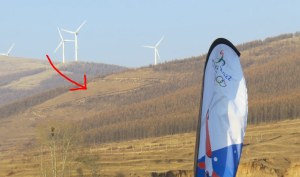
When I traveled to the area in 2015, the section of The Wall near the proposed venue was there, but it was merely a pile of rubble – remnants of the historic structure that had stood for centuries. I was told that it would be refurbished ahead of the Games.
A mountain medals plaza will be added in nearby Chongli so that winning skiers won’t have to make the journey to Beijing to collect their hardware.
A third cluster in Yanqing about midway between the other two will be comprised of newly constructed venues for Alpine Skiing and the Luge, Skeleton and Bobsleigh sliding events. It will be linked into the new high-speed rail system.
The compactness of the venue footprint that we’ve been spoiled with in Sochi and PyeongChang may now be a thing of the past. A 30-minute shuttle-ride between the two main clusters in South Korea will become more of a journey in China – limiting the number of events someone can attend in a single day. But this is the “new norm” the IOC tells us, as new cities will now use existing venues further apart to help control the skyrocketing cost of hosting the Games.
You may want to bring the same clothes to Beijing that you wore in South Korea this month, as the climate is similar – at least temperature-wise. Highs and lows are comparable between ice clusters Beijing and Gangneung while they’re also similar in the mountains between Zhangjiakou and PyeongChang. The good news is, the winds can be expected to be much lighter in China.
The mountain elevations for the 2018 and 2022 Games are also comparable with both at about 700 metres. But expect Zhangjiakou to be dryer – much dryer – than PyeongChang. You are unlikely to see any natural snow in the desert-like clime with only one day on average of precipitation in February, and only up to 4 mm of it. All the snow you’ll see on the slopes will be artificial. In PyeongChang we enjoyed a couple of evenings of snowfall.
The core sports program in Beijing will remain the same as it was in PyeongChang, the IOC Session was told earlier this month when organizers declined to request any changes. But National Hockey League (NHL) players will likely return to the Games in 2022. Players from the premier North American league were absent in PyeongChang after league management refused to participate because of the cost of halting the NHL regular season for two-and-a-half weeks, and without return consideration from the IOC that would allow the NHL to use Olympic properties for marketing purposes.
But the NHL is working hard to develop hockey in China where its biggest untapped market in the world resides, and interest is growing. The opportunity for the NHL to get involved in Beijing will be too hard for the league to turn down – if the IOC will have the players back after the PyeongChang snub. Spoiler alert: The IOC will have them back.
As they were in PyeongChang, expect the venues to be complete and ready in time for the Beijing Games. With Chinese diligence, there likely won’t be any delays similar to those experienced in Sochi and Rio. Much of the work is already underway, and with the IOC getting more involved in the organization of the Olympics – they’ll get whatever help they need.
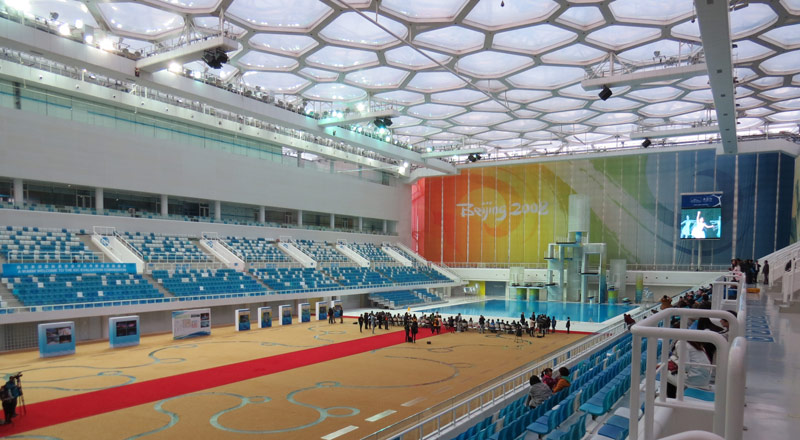
But while a lot of the Beijing 2022 project is itself a legacy of the 2008 Games – much of the future legacy of the new venues being built for the Winter Games is questionable. Winter sports is not a priority in the region, and the continued use of a sliding track, ski jump tower and biathlon arena seems doubtful. And the purpose of a high-speed train station in the centre of a sparsely used winter resort area had me scratching my head when it was first proposed and I visited the spot in 2015.
The PyeongChang torch will soon be snuffed out, but as IOC President Thomas Bach then invites the world to Beijing in 2022 – a new journey begins. I’m confident it will end with a successful Winter Games.
